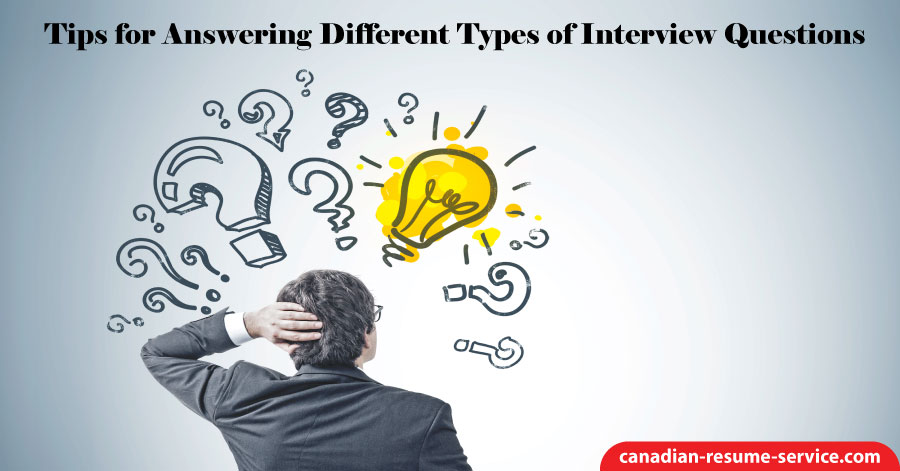Strategies for successful job interview responses include preparation, honesty, and the use of the STAR method for behavioral questions. Highlight achievements, address weaknesses positively, and stay composed while listening attentively to the interviewer. Tailor responses to the role, express enthusiasm, and seek clarification when needed. By employing these strategies, candidates can effectively navigate basic and challenging interview questions, showcasing their qualifications and the value they can bring to the position.
Open-ended Interview Questions
Open-ended job interview questions allow the interviewer to gain insight into your background and overall personality. These questions are typically open-ended and aim to gather information beyond your job skills, providing a holistic understanding of yourself.
One typical example is the “tell me about yourself,” where you’re encouraged to share personal and professional experiences that shape your identity and motivations.
Additional Open-ended Job Interview Questions
- Can you describe a project or task where you were given significant autonomy? How did you approach it, and what was the outcome?
- Tell me about a significant challenge you faced in your previous role. How did you navigate it, and what did you learn from the experience?
- Describe a situation where you had to collaborate with a diverse team to achieve a common goal. How did you handle differences in perspectives, and what was the result?
- Describe a situation where you took the initiative to solve a problem. What was the outcome?
- How do you prioritize your tasks when you have multiple deadlines to meet?
- What do you consider your greatest strengths and weaknesses?
- Can you describe how you dealt with a difficult coworker or client?
- How do you stay current with industry trends and developments?
- What do you value most in a workplace environment?
- Describe a time when you had to learn a new skill quickly. How did you approach it?
These questions allow you to showcase your personality, values, and unique qualities that may not be captured by your resume alone. By sharing anecdotes, achievements, and aspirations, you can paint a vivid picture of yourself that resonates with the interviewer and sets a positive tone for the rest of the job interview.
It’s essential to approach opening questions with confidence and authenticity, using them as an opportunity to make a memorable first impression. By crafting a compelling narrative that highlights your strengths, interests, and suitability for the role, you can effectively engage the interviewer and lay the foundation for a successful interview.
When answering these questions, take your cues from the interviewer about how formal or informal you should be. Try to provide information that indicates something you have in common with the interviewer, as this could help establish rapport and set the tone for the rest of the interview.
Describe a few personal items, such as hobbies or interests. This would be the place to mention work-related factors such as previous work experience, training, and education.
Mentioning these topics will help create a friendly atmosphere and put you and the interviewer at ease, making the rest of the interview go smoothly.
How to Answer Interview Questions Related to Company Research
An essential section of your interview will consist of questions related to the company. The hiring committee is trying to determine whether you’ve done your homework and whether you’d fit well into their environment. So, in preparation for the interview, research the company, its products/services, and what makes it unique.
An interviewer may ask, “Why do you want to work here?” They will ask this question to gauge your research into the company and the position.
Knowledge about the company and the job shows the interviewer you’re interested and demonstrates initiative. When answering, mention as many positive features of the company as possible, being as specific as possible. Try to tie your answer to why you’d make a good fit.
How to Answer the Closing Section of an Interview
Typical questions that an interviewer will ask you near the end of the interview are to ask for references and if you have any questions for them. Even though this part of the interview may seem straightforward, there’s still the best way to navigate this.
Job Interview References
When choosing references, prioritize individuals who can vouch for your qualifications, character, and work ethic. Opt for former supervisors, colleagues, or mentors familiar with your professional abilities and achievements. Ensure they are willing to provide a positive recommendation if contacted by the prospective employer. During the interview, come prepared with neatly typed references on a separate sheet, including names, positions, locations, and telephone numbers. Aim for a mix of 3 to 5 personal and professional contacts to provide a comprehensive view of your capabilities and character.
Questions for the Interviewer
When prompted by the interviewer to inquire, it’s advisable to pose at least two or three questions indicating your keen interest in the role. However, avoid delving into salary, benefits, hours, or vacation details during the interview. While this information is vital for decision-making, it’s prudent to await a job offer before broaching these topics.
Questions suitable for asking the interviewer:
- Can you provide insight into the day-to-day responsibilities of this role?
- What qualities do successful candidates typically possess in this position?
- Can you share more about the team dynamics and how this role contributes to the team’s goals?
- What opportunities for professional development and growth are available within the company?
- How does the company support work-life balance for its employees?
These questions demonstrate your interest in the position and the company while avoiding sensitive topics like salary or benefits, which are typically addressed later in the hiring process.
Need additional help? Reach out to Candace for assistance!

